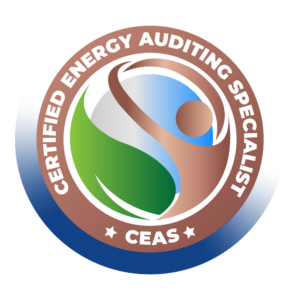About Course
Energy Management and Audit Specialist – EMAS 
The industry-recognized Energy Management and Audit Specialist Training Program gives energy professionals a “big picture” view of energy management and audit for commercial buildings and facilities. This curriculum prepares candidates for the Energy Management and Efficiency Certification Test (CEM).
It covers energy basics, fuel supply and pricing, energy audits and instruments, rules and standards, and non-residential building expenses. It describes how high-performance or green buildings save energy. This comprehensive approach helps energy professionals understand the big picture and optimise systems to cut costs, boost profitability, and satisfy tenants. Most course attendees depart with profitable facility improvements they can implement immediately.
Assessments of major buildings and industrial complexes’ energy efficiency are performed by EMAS, which stands for Energy Management and Audit Specialist. Building systems, occupancy, operations, maintenance, and compliance with building codes are all examined during their audits.
An auditor’s goal is to present their client with comprehensive survey data, an analysis of risk mitigation strategies, implementation plans, and a conclusion regarding the investment grade of the business. A significant number of auditors conduct their work in accordance with predetermined regulations and standards, such as the ASHRAE Standard 211-2018 for Commercial Building Energy Audits.
The Energy Management and Audit Specialist Training Program was prepared by a sustainability specialist, Krishnaji Pawar.
specialises in developing sustainable design strategies for Green Building Certification Systems (LEED, GSAS, etc.), Energy Management, Energy Efficiency, Energy Audits, Building Commissioning,Environmental Impact Assessments, and Environmental Management Systems.
The following are some insights into the course content:
- Why Energy Management is Important
- Global Trends on Energy, Economy, and Our Environment
- Energy Fundamentals
- Overview of Utility Rate Components
- Energy Audits and Instrumentation
- Audit Strategies/Approaches
- Energy Codes and Standards
- High-performance green buildings
- Receive a certificate of completion from Udemy after completing all the course videos, quizzes, and tests.
An Energy Management and Audit Specialist, or EMAS, is responsible for assessing and analysing the manner in which energy is being utilised inside a commercial or institutional building, locating opportunities for energy conservation, and providing recommendations for areas in which consumption can be reduced or improved. Level 1 audits are walkthrough surveys that allow you to rapidly identify opportunities for energy savings. Level 2 audits are energy survey analyses that are commonly used in commercial buildings. Level 3 audits are detailed analyses of capital-intensive modifications. There are three primary types of energy audits.
Participants in the Energy Management and Audit Specialist – EMAS programme receive the foundational information necessary to evaluate how energy is being used in a facility and identify where consumption can be decreased. The programme lasts for four hours. In addition to this, it goes into helpful computation approaches and illustrates them using real-world examples and group exercises.
If you are now involved in or want to become involved in audits of commercial buildings and want to enhance your knowledge of the whole energy auditing and reporting process, then this is the appropriate course for you to take. Additionally, you will be prepared to take the exam and acquire the CEA credential if you do this course.
Key Learning Objectives
Upon completing this course, participants will:
- Gain an understanding of the goals of energy audits as well as the primary procedures involved in the auditing process.
- It is important to be aware of the various audit levels as well as how to successfully plan for an audit.
- It is important to effectively communicate the findings of energy audits to customers.
- Gain an understanding of the many sources of energy, as well as the conversions between energy units, rate structures, and benchmarking.
- A facility manager needs to be able to conduct an energy consumption analysis and create an energy balance.
- How to determine the essential information that has to be collected before and during field visits, as well as how to analyse the data that has been gathered and turn it into information.
- Regardless of the type of investment project, you should be able to analyse it and make a decision using the appropriate processes and tools. The primary emphasis should be placed on energy efficiency programmes.
- Gain an understanding of the fundamental principles and distinguishing features of energy-consuming systems.
- Contribute to an improvement in the level of professionalism displayed by individuals who do energy audits.
Course Content
Section 1: Introduction & Course Outline
-
11:37
-
L1. Introduction & Course Outline. Handout
Section 2: Energy Management
Section 3: Energy Engineering Basics
Section 4: Fuel Supply and Pricing
Section 5: Energy Purchasing
Section 6: Codes and Standards
Section 7: Energy Accounting and Benchmarking
Section 8: Energy Audit Instrumentation
Section 9: High Performance Green Buildings
Section 10: Summary and Resources
Student Ratings & Reviews


